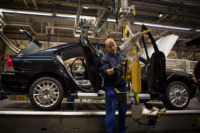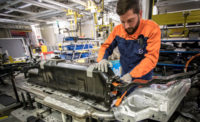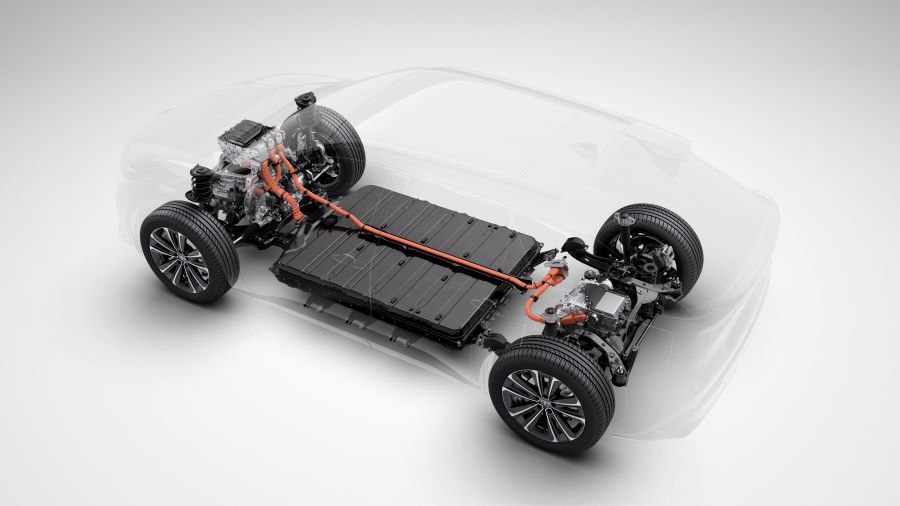RIDGEVILLE, SC — Volvo will build its own U.S. battery assembly plant as it readies a line of electric vehicles for the market. The expansion is part of a previously announced $600 million project by the Swedish automaker, which includes a second production line and Volvo Car University.
Volvo will create an electric version of its next XC90 crossover and build it at the plant starting in late 2022. The factory, northwest of Charleston, employs about 1,500 workers building the S60 sedan. The plant will become the global production center for the third-generation XC90 flagship crossover.
The vehicle will be built on the next version of Volvo's Scalable Product Architecture platform, referred to as SPA2. Volvo has not said how much of the XC90's production at the $1.1 billion factory will be devoted to the battery-electric variant. Construction of the battery assembly plant will be completed by the end of 2021.
At the facility, employees will put together and test the lithium ion battery packs that will power the crossover. By assembling the packs on campus, Volvo hopes to reduce shipping costs involved in transporting the heavy batteries.
Overall, the planned XC90 production line is expected to create about 1,000 jobs.
The XC90 would be Volvo's third battery-powered model. Its first, an electric version of the fast-selling XC40 compact crossover, was unveiled in October. That EV will arrive in U.S. stores in the fourth quarter of 2020, priced at under $48,000, after the $7,500 federal tax credit, Volvo said.
The automaker wants battery-powered vehicles to account for half of its global sales by 2025. Over the next five years, Volvo expects to launch a fully electric vehicle every year.
“A Volvo built in 2025 will leave a carbon footprint that is 40 percent lower than a car that we build today,” says Volvo CEO Hakan Samuelsson. “We made safety part of the brand. We should do the same with sustainability.”



